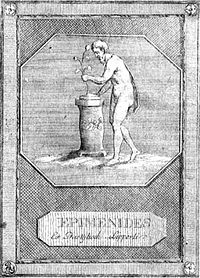Seeing as how we just finished
presenting our allusion assignments in class on how modern works
allude to the Bible, and then noticing that another book is mentioned
in Joshua that is not part of the Bible, I was curious as to what
that book was and how many other books (not of the Bible) are
mentioned throughout the text.
Is this not written in the Book of Jashar? The sun stopped in the
midst of heaven and did not hurry to set for about a whole day.”
-Joshua 10:13
The Book of Jasher? I don't remember that one from Sunday school. I checked, it's not in the Bible. So what is the Book Of Jasher? Unfortunately there is no way of knowing beyond doubt what the original text contained because it was most likely lost. However, there are several books with this title that are presumably reverse engineered as a result of its reference in Joshua and 2 Samuel. Most believe the book to have been a “collection or compilation of ancient Hebrew songs and poems praising the heroes of Israel and their exploits in battle” (What is the Book of Jasher and Should It Be in the Bible?). It appears to be recalled by David in some poetic form in the verses of 2 Samuel 1:17-27. Whether you choose to believe one of the three versions of the Book of Jasher currently in print are the actual text referred to in the Old Testament is up to you, but note that it is never mentioned in the Bible after the time of David.
So just how many non-canonical books are referred to in the Bible? In the Tanakh, or Old Testament alone there are 23. For the sake of brevity I will only mention a few:
- The Book of the Wars of the Lord (Numbers 21:14)
- The Book of Samuel the Seer, the Book of Nathan the Prophet,
and the Book of Gad the Seer (1 Chronicles 29:29)
- The Chronicles of the Kings of Judah (1 Kings 14:29)
These instances may lead some to doubt the divine inspiration attributed to the Bible. Others may see it as the author using materials from many different sources to make a point. The people of the Bible were not excluded from the rest of the world during its writing, they were in constant contact with other cultures.



No comments:
Post a Comment